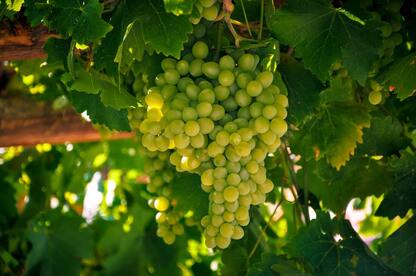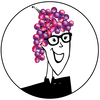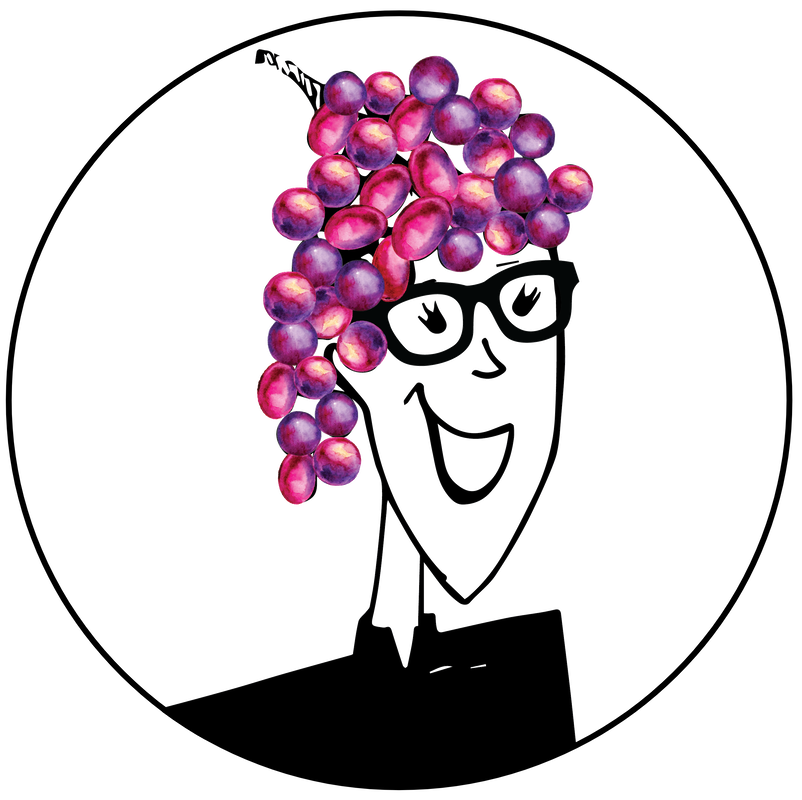 International Star Chardonnay is a semi-aromatic grape variety and the world’s most famous white wine. With roots in France and planted around the globe, it’s the number one white planted international grape variety. And while many recall the hangover effects of the mistreatment of this varietal (too much oak, too much alcohol, too ripe and a lack of acidity), today there are amazing bottles and producers in the market expressing Chardonnay with crisp freshness, balanced richness and a finesse of oak and complexity. Join us for ABC - Always Bank on Chardonnay. That’s the name of our upcoming Chardonnay wine session on Zoom this coming Thursday January 21 at 7:30 pm (PST) with Mark Shipway. ABC? What does it mean?
It means the customer was harshing on Chardonnay. Usually said with an eye roll and a head toss, it was a direct reference to “anything but chardonnay”. Very specific and derogatory, this reaction was a shift of consumers away from poorly made Chardonnay, towards styles that were fresh and crisp – like Sauvignon Blanc. This resulted in a rethink for many winemakers who considered Chardonnay to be infallible. What Happened? How could this have happened to the world’s most famous white? It started in the late 90s when winemakers got a little carried away with winemaking options and perhaps trying to emulate the most famous expression of Montrachet from Burgundy. By all accounts the use of oak was not wrong, the ripeness of fruit not terrible but the resulting wines were rich, and full bodied, verging on fat and flabby with ripe tropical fruit flavours. That is not Montrachet. Not even close. The New ABC It’s safe to say that there has been a clear shift in the winemaker’s response to the ABC crisis. It’s been a painstaking 180 degree pivot to applying a delicate hand to the use of oak, managing the ripeness of fruit and controlling temperatures during fermentation, resulting in a Chardonnay revival. Hence we would argue that today you can change the meaning of ABC to “Always Bank on Chardonnay”. Gas vs. Electricity In fact, the Chardonnay conversation has shifted so much that today we ask “Do you like cool climate or warm climate Chardonnay?”. Beppi Corsariol, wine writer for the Globe & Mail has used the analogy that “metaphorically speaking, warm-climate chardonnays run on gas, cool-climate chardonnays run on electricity.” I suggest you equate acidity with electricity. Foodies say acidity in wine makes for a better food pairing partner. I agree. Cool Climate vs Warm Climate So what does it mean? Cool climate Chardonnay is a catch phrase for wine from regions like Russian River (CA), Margaret River & Tasmania (AZ), Walker Bay (SA), New Zealand, Willamette Valley (OR), Okanagan Valley (BC), Casablanca (CH), Niagara (ON), keeping in mind this list is not exhaustive. Think fogs that protect the grapes in the heat of the summer, breezes off the ocean or lake, shorter growing season, elevation which results in capturing the freshness of the fruit – the electricity. If you are looking for gas, look no further than Central Valley for generic California Chardonnay. It’s ripe, full bodied, rich and tropical. Don't Miss This New World Chardonnay Story If you haven’t seen the wine documentary, “A Seat at the Table” , check it out. This is a great example of the shift tides for Chardonnay from a New Zealand cool climate producer. The Keys to Chardonnay Style What are the keys to finding the style of Chardonnay that suits you? I suggest it depends on three things: oak, butter and acidity with the assumption of balance and harmony. Oak Let's talk about oak. Today a lot of commercial white wines are made in stainless steel tanks. Chardonnay is no exception. The reason a winemaker would choose stainless steel is to create a wine that is clean, fruit forward and unoaked. Oak staves (chips) can be added to bring hints of oak reminiscent in classic old world styles which when done right, will make it difficult to differentiate from staves and barrel. However, higher quality barrel fermented Chardonnay is made in oak producing a concentration that is hard to replicate with staves (as mentioned above). These wines tend to be fuller bodied with more character and texture than above where fruit plays partner and not a lead in the taste experience. This style benefits from bottle age much like the Montrachet and tends to be more expensive across the board. Butter Who loves butter? Another signature profile of Chardonnay is the buttery note (sweet creamy butter) on the nose and palate. This is a signature of classic Chardonnay. The cause is chemistry. Malolactic fermentation is what it’s called. Where tart malic acid converts to softer lactic acid which gives dairy aromas and flavours – think cream, butter, and yogurt. Again it’s a winemaker’s decision and when thoughtful and careful the result turns boring into epic. Acidity Freshness is wine is acidity. If grapes are left to hang until full ripeness (tricky at the best of times) the chances that the wine ends up big and alcoholic is real. It’s chemistry again. Damn it. You see, sugar in the grape juice when fermenting converts to alcohol. More sugar means more alcohol. With climate change, the trend toward wines with high alcohol is a growing concern in California, Australia, Burgundy, and just about everywhere in the wine world. It’s a real threat. The way producers combat this is to harvest earlier with the aim to capture grapes with less sugar, more acidity and freshness resulting in wines with this character. That’s while cool climate has advantages in this case. The growing season is short. The temperature shift day and night helps to retain acidity and the result is less sugar and more freshness. This is one of the reasons that grape growing regions bordering the 50th parallel, considered to be the limit that grapes can ripen, are turning out incredibly fresh amazing Chardonnay. In BC’s Okanagan Valley, the success of Checkmate Winery’s 100 point Chardonnays is just one example of this phenomenon. Wine Recommendations Are you still with me? That was far more information than I had intended. But Chardonnay is worthy. Here are some wine recommendations for our upcoming session that you can find at the BC Liquor Stores, Marquis Wine Cellar and Swirl Wine Store. Australia Coldstream Hills Chardonnay 2017 $27.99 Vasse Felix - Filius Margaret River Chardonnay 2017 $32.99 Shaw & Smith M3 Chardonnay 2019 $65.13|Marquis Canada Closson Chase Chardonnay 2018 (ON) $23.49 Quails Gate – Stewart Family Reserve 2017 $44.99|Swirl Mission Hill – Perpetua Chardonnay 2018 $66.99|Swirl Checkmate Fool’s Mate Chardonnay 2014 $70.29|Marquis France Laurent Miquel Pere et Fils Chardonnay 2018 $19.04|Marquis Petit Chablis - Pascal Bouchard – Blanc Cailloux 2017 $31.99 Saint Veran - Domaine du Chalet Pouilly 2017 $32.09|Marquis Chablis - Drouhin Vaudon Réserve de Vaudron 2017 $40.99 Mercurey 1er Cru - Domaine Michel Fuillot 2017 $58.99 South Africa DeMorgenzon - DMZ Chardonnay Stellenbosch 2018 $23.99 Topiary by Phillippe Colin Chardonnay 2017 $39.99 Hamilton Russell Hemel en Aarde Valley 2016 $64.49|Marquis USA Bonterra Organic Chardonnay 2018 (Mendocino) $21.99 Rodney Strong – Chalk Hill, Sonoma Chardonnay 2017 $29.99 Copain Tous Ensemble Chardonnay 2015 $45.13|Marquis Brewer Clifton Santa Rita Hills Chardonnay 2017 $41.99 Matthiason Linda Vista Chardonnay 2018 $63.39|Marquis If you have any questions or feedback, please leave a message for me in the comments below. Thank you for reading to the end. Muah!
1 Comment
9/10/2023 00:50:17
StoreOpinion Ca is an official survey platform used by major retail stores in Canada. It allows customers to provide feedback on their shopping experiences. The surveys typically consist of multiple-choice questions and take 5-10 minutes to complete. Participation in the survey may offer customers a chance to win a $1,000 Optimum Pc gift cards.
Reply
Leave a Reply. |
AUTHORI'm Good Wine Gal.
I blog about "good wine" and how to find it! Join me on my adventures of finding beautiful wine loving places, people and those special bottles we all get excited about. Archives
March 2024
|
Photos from Magnus Reuterdahl, wuestenigel, Fareham Wine

